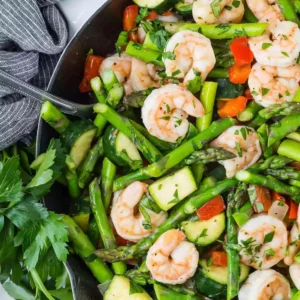Hey there! Have you ever wondered about the hidden gems in the vegetable world? Let me introduce you to Bodi vegetable, also known as the yardlong bean, snake bean, or asparagus bean. This slender, elongated vegetable resembles a long, green snake, and while its appearance might be unusual, it’s a treat for your taste buds and a powerhouse of nutrients. Bodi is a nutritious addition to your diet, packed with vitamins, minerals, and dietary fiber. Let’s dive into its Bodi vegetable benefits and see why you should consider adding it to your meals.

What is Bodi Vegetable?
Bodi vegetable is a type of legume that resembles a long, green bean. It’s commonly found in Asian cuisines and is known for its crisp texture and slightly sweet flavor. You might have seen it in stir-fries or soups, adding a delightful crunch and vibrant green color.
Bodi vegetables, also known as Yardlong beans or snake beans, or asparagus beans, are a type of legume cultivated for their edible green pods containing immature seeds, similar to green beans. They are vining plants that can grow up to 10 feet long and produce long, slender pods that can reach up to 3 feet in length, though “Bodi vegetable” is a bit of an exaggeration – they typically only grow to be about half a yard long.
Bodi vegetable are native to southern Asia and are now grown extensively in many parts of the world, including Asia, Africa, and North America. They are a popular ingredient in many Asian dishes and are becoming increasingly popular in other parts of the world as well.
Nutritional Profile of Bodi Vegetable
So, what makes Bodi vegetable so special? It’s all about the nutrients packed inside.
Vitamins in Bodi Vegetable
First up, vitamins! Bodi is loaded with Vitamin A, which is great for your vision and immune system. It also has a good amount of Vitamin C, helping to keep your skin healthy and glowing.
Vitamin A
- Vitamin A in Bodi comes in the form of beta-carotene, which your body converts into retinol.
- This vitamin is crucial for maintaining healthy vision, especially in low light conditions.
- It also plays a role in immune function, helping your body fend off infections and illnesses.
- Moreover, Vitamin A is essential for cell growth and differentiation, making it vital for maintaining healthy skin, teeth, and bones.
Vitamin C
- Vitamin C is a powerful antioxidant that helps protect your body from free radical damage.
- It’s essential for the production of collagen, a protein that aids in the formation of skin, blood vessels, tendons, and ligaments.
- This vitamin also enhances the absorption of iron from plant-based foods and boosts your immune system, helping you fight off colds and other illnesses more effectively.
Minerals Found in Bodi Vegetable
Don’t forget the minerals! Bodi is a good source of iron, which is essential for blood health. It also contains potassium, which helps in regulating blood pressure and keeping your heart happy.
Iron
- Iron is a critical component of hemoglobin, the protein in red blood cells that carries oxygen from your lungs to the rest of your body.
- Without enough iron, your body can’t produce enough healthy oxygen-carrying red blood cells, leading to iron-deficiency anemia.
- Symptoms of anemia include fatigue, weakness, and shortness of breath.
- Including iron-rich foods like Bodi in your diet helps maintain healthy iron levels and supports overall energy and vitality.
Potassium
- Potassium is a mineral that helps maintain fluid and electrolyte balance in your body.
- It’s essential for normal cell function, nerve transmission, and muscle contraction.
- Potassium also helps counteract the effects of sodium, which can raise blood pressure.
- By maintaining a proper balance of potassium and sodium, you can help keep your blood pressure in check and support heart health.
Bodi Vegetable Benefits on Health
Now, let’s get to the juicy part – the health benefits. Here’s why Bodi vegetable should be a regular on your plate.
1. Supports Digestive Health
Ever had days when your stomach just doesn’t feel right? Bodi can help with that. It’s rich in dietary fiber, which aids in digestion and keeps things moving smoothly. Say goodbye to constipation!
How Fiber Helps Digestion
- Dietary fiber adds bulk to your stool and helps it pass more easily through your digestive system.
- This can prevent constipation and promote regular bowel movements.
- Fiber also feeds the beneficial bacteria in your gut, which play a crucial role in digestive health.
- A healthy gut microbiome can reduce inflammation and improve nutrient absorption, making you feel better overall.
Other Digestive Benefits
- In addition to preventing constipation, the fiber in Bodi can help manage symptoms of irritable bowel syndrome (IBS) and other digestive disorders.
- It slows down digestion, allowing your body to absorb more nutrients from the food you eat.
- This can also help regulate blood sugar levels, making Bodi a great choice for people with diabetes.
2. Aids in Weight Management
Trying to shed a few pounds? Bodi is low in calories but high in fiber, making you feel full longer. It’s a perfect addition to a weight-loss diet.
Low in Calories
- One of the biggest challenges in weight management is finding foods that fill you up without packing in the calories.
- Bodi is perfect for this. It’s low in calories, meaning you can eat a good portion without worrying about your calorie intake.
- This can help you maintain a calorie deficit, which is essential for weight loss.
High in Fiber
- The high fiber content in Bodi makes you feel full longer, reducing the likelihood of overeating or snacking between meals.
- Fiber takes longer to digest, so it stays in your stomach longer, helping you feel satisfied.
- This can make it easier to stick to your diet plan and avoid those late-night cravings.
3. Boosts Immune Function
Want to keep those pesky colds at bay? The vitamins and antioxidants in Bodi help strengthen your immune system, keeping you healthier and more energetic.
Role of Vitamin C
- Vitamin C is a well-known immune booster.
- It stimulates the production of white blood cells, which are essential for fighting infections.
- It also acts as an antioxidant, protecting your cells from damage by free radicals.
- This can reduce your risk of chronic diseases and keep your immune system functioning at its best.
Antioxidants in Bodi
- In addition to Vitamin C, Bodi contains other antioxidants that help protect your body from oxidative stress.
- Oxidative stress can weaken your immune system and make you more susceptible to infections and diseases.
- By neutralizing free radicals, antioxidants in Bodi help keep your immune system strong and ready to defend against pathogens.
How to Incorporate Bodi Vegetable into Your Diet
Alright, so you’re convinced about the benefits. But how do you actually eat Bodi vegetable? Let’s get into some tasty ways to enjoy it.
Cooking Methods:
Stir-frying:
- This is a classic way to prepare Bodi vegetable. Simply cut them into thin strips, stir-fry them with your favorite vegetables and protein, and add a flavorful sauce.
Steaming:
- Steaming is a healthy and easy way to cook Bodi vegetable. It preserves their nutrients and crisp texture. You can enjoy them plain with a drizzle of olive oil and seasonings, or add them to salads or grain bowls.
Sautéing:
- Sautéing Bodi vegetable with garlic, ginger, and spices creates a flavorful side dish.
Boiling:
- Boiling is a quick and simple way to cook Bodi vegetable. However, this method can lead to some nutrient loss. You can use boiled beans in soups, stews, or dips.
Roasting:
- Roasting Bodi vegetable brings out a caramelized flavor and a slightly crispy texture. Toss them with olive oil, salt, pepper, and your favorite spices before roasting for a delicious and healthy side dish.
Recipe Ideas:
Asian Stir-fry:

- Stir-fry Bodi vegetable with chicken, tofu, or shrimp, along with bell peppers, onions, and a savory stir-fry sauce. Serve over rice or noodles.
Thai Curry:

- Add sliced Bodi vegetable to your favorite Thai curry recipe for a flavorful and nutritious addition.
Vietnamese Noodle Salad:

- Thinly sliced Bodi vegetable add a refreshing crunch to Vietnamese noodle salads.
Indian Sabzi:

- Prepare a delicious Indian-style sabzi by cooking Bodi vegetable with onions, tomatoes, and spices.
Salads:

- Raw or cooked Bodi vegetable can be chopped and added to salads for a boost of vitamins, minerals, and fiber.
Tips:
- Wash Bodi beans thoroughly before cooking.
- Trim off the ends before cooking.
- You can cut Bodi beans into different sizes depending on the recipe. For stir-fries or salads, cut them into thin strips. For roasting or stews, you can cut them into 2-3 inch pieces.
- Bodi beans cook quickly, so don’t overcook them to avoid mushiness.
With a little creativity, you can easily incorporate Bodi vegetable into your diet and enjoy their unique flavor and impressive nutritional benefits.
Conclusion
Forget boring vegetables! Bodi vegetable, also known as Yardlong beans, are a delicious and nutritious powerhouse waiting to be explored. They boast a range of Bodi vegetable benefits, from strengthening your immune system to aiding in weight management. These versatile beans can be enjoyed in countless ways – stir-fried, steamed, added to curries, or even eaten raw. With their impressive nutrient profile, Bodi vegetables are a welcome addition to any kitchen and a valuable player in a healthy and balanced diet.
FAQs
Q. What is the best way to cook Bodi vegetable to retain its nutrients?
A. The best way to cook Bodi while retaining its nutrients is by lightly steaming or sautéing it. Avoid overcooking to preserve its vitamins and minerals.
Q. Can Bodi vegetable help in lowering cholesterol levels?
A. Yes, Bodi vegetable contains fiber which can help in lowering cholesterol levels by binding to cholesterol in the digestive system and helping to remove it from the body.
Q. Are there any side effects of consuming Bodi vegetable?
A. Generally, Bodi is safe to eat. However, some people might experience allergies or digestive issues if consumed in large quantities. It’s always best to start with small portions.
Q. Does Bodi vegetable provide enough protein for vegetarians?
A. While Bodi vegetable does contain some protein, it might not be enough as the sole protein source for vegetarians. It’s best to combine it with other protein-rich foods.
Q. Is Bodi vegetable suitable for diabetic individuals?
A. Yes, Bodi vegetable is low in carbohydrates and high in fiber, making it a good choice for individuals managing diabetes.